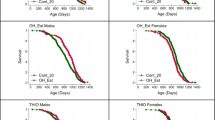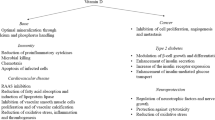Summary.
Background:
The vegetarian lifestyle is supposedly healthy, and differences between vegetarians and non-vegetarians in biomarkers related to diseases such as cancer might be expected.
Aim of the study:
To investigate the possible role of different diets in maintaining genomic stability.
Methods:
The vegetarian group, consisting of 24 volunteers (13 women and 11 men), were matched for age and sex with 24 volunteers (12 women and 12 men) with a traditional dietary habit.Among vegetarians there were 13 lacto-ovo-vegetarians (8 women, 5 men) with average length of vegetarian diet 10.8 years (ranging from 5 to 26) and 11 lacto-vegetarians (5 women, 6 men) with average length of vegetarian diet 8.2 years (ranging from 3 to15). All volunteers were nonsmokers, non-consumers of alcohol and had similar education and patterns of physical activity. Chromosome aberrations, micronuclei and DNA damage (strand breaks, oxidised bases and H2O2-sensitivity) were examined in peripheral blood lymphocytes of vegetarians and non-vegetarians. Plasma antioxidant status was assessed with the FRAP assay.
Results:
We did not find any differences in percentage of cells with chromosome aberrations or in the frequency of micronuclei between vegetarians and non-vegetarians or between lacto-ovo and lacto-vegetarians. There was no statistically significant difference in total antioxidant capacity between the groups. The group with traditional dietary habits had significantly higher levels of oxidative DNA damage (strand breaks and oxidised purines, P = 0.005) compared with vegetarians. A significant positive correlation between age and oxidative DNA damage (net FPG-sensitive sites) was found in non-vegetarians, while there was an opposite trend towards a negative association in vegetarians. On the other hand chromosome aberrations correlated with age in vegetarians (r = 0.48, P = 0.017) but not in non-vegetarians.
Conclusions:
Our results indicate that a vegetarian diet can lead to a slight decrease in oxidative DNA damage in lymphocytes, but other markers of genetic stability are not affected. The lowest level of DNA damage was found in lymphocytes of lactovegetarians, (especially oxidised pyrimidines, P = 0.0017), suggesting that this diet provides some protection against oxidative stress.
Similar content being viewed by others
Author information
Authors and Affiliations
Corresponding author
Rights and permissions
About this article
Cite this article
Kažimírová, A., Barančoková, M., Volkovová, K. et al. Does a vegetarian diet influence genomic stability?. Eur J Nutr 43, 32–38 (2004). https://doi.org/10.1007/s00394-004-0436-8
Received:
Accepted:
Published:
Issue Date:
DOI: https://doi.org/10.1007/s00394-004-0436-8




